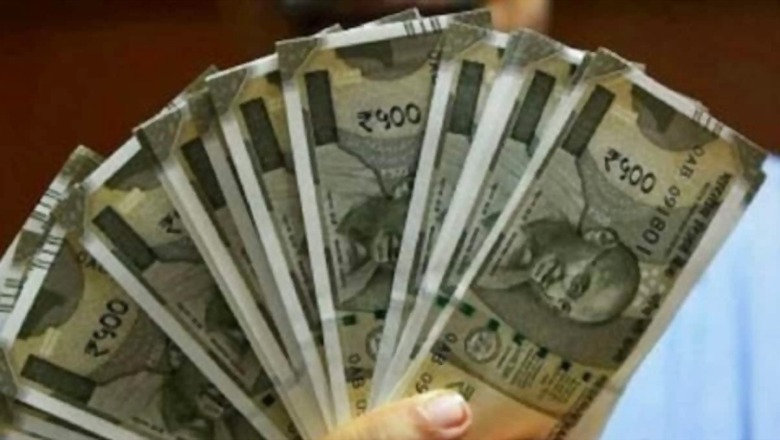
views
Introduced in 2018, electoral bonds allowed citizens to donate to political parties anonymously — i.e., the identity of the donor was not disclosed to the public. Since then, parties across the spectrum have collected huge amounts through this mode, which also became one of the biggest contributors to their income.
On Thursday, the Supreme Court struck down the scheme, saying anonymous electoral bonds violated citizens’ right to information. Calling these bonds “unconstitutional", the top court also said: “Infringement of the voter’s right to know is not proportionally justified by saying black money is being curbed."
The SC also directed banks to stop issuing electoral bonds. It asked the State Bank of India (SBI) to submit a report on donations through electoral bonds to the Election Commission.
“SBI shall furnish the details of donations through electoral bonds and the details of the political parties which received the contributions by March 6," the court said.
The apex court has asked the poll body to publish the data received on electoral bonds on its website by March 13 and directed the political parties to refund the amount to the voters thereafter.
It is important to note that electoral bonds, once issued, were valid for fifteen days and no payment could be made after that.
The SC delivered the verdict on four petitions including those filed by Congress leader Jaya Thakur, the Communist Party of India (Marxist), and the NGO Association for Democratic Reforms (ADR).
HOW MUCH PARTIES HAVE EARNED THROUGH THESE BONDS
In 2022-23, the BJP earned the highest amount – Rs 1,294 crore – from electoral bonds, followed by the Bharat Rashtra Samithi (BRS), earlier called the Telangana Rashtra Samithi (TRS), which received Rs 529 crore.
West Bengal’s ruling Trinamool Congress (TMC) was third with Rs 325 crore and the Dravida Munnetra Kazhagam (DMK), which is in power in Tamil Nadu, was in fourth place with Rs 185 crore. The Congress was fifth with Rs 171 crore, followed by Odisha’s ruling Biju Janata Dal (BJD), which earned Rs 152 crore through electoral bonds.
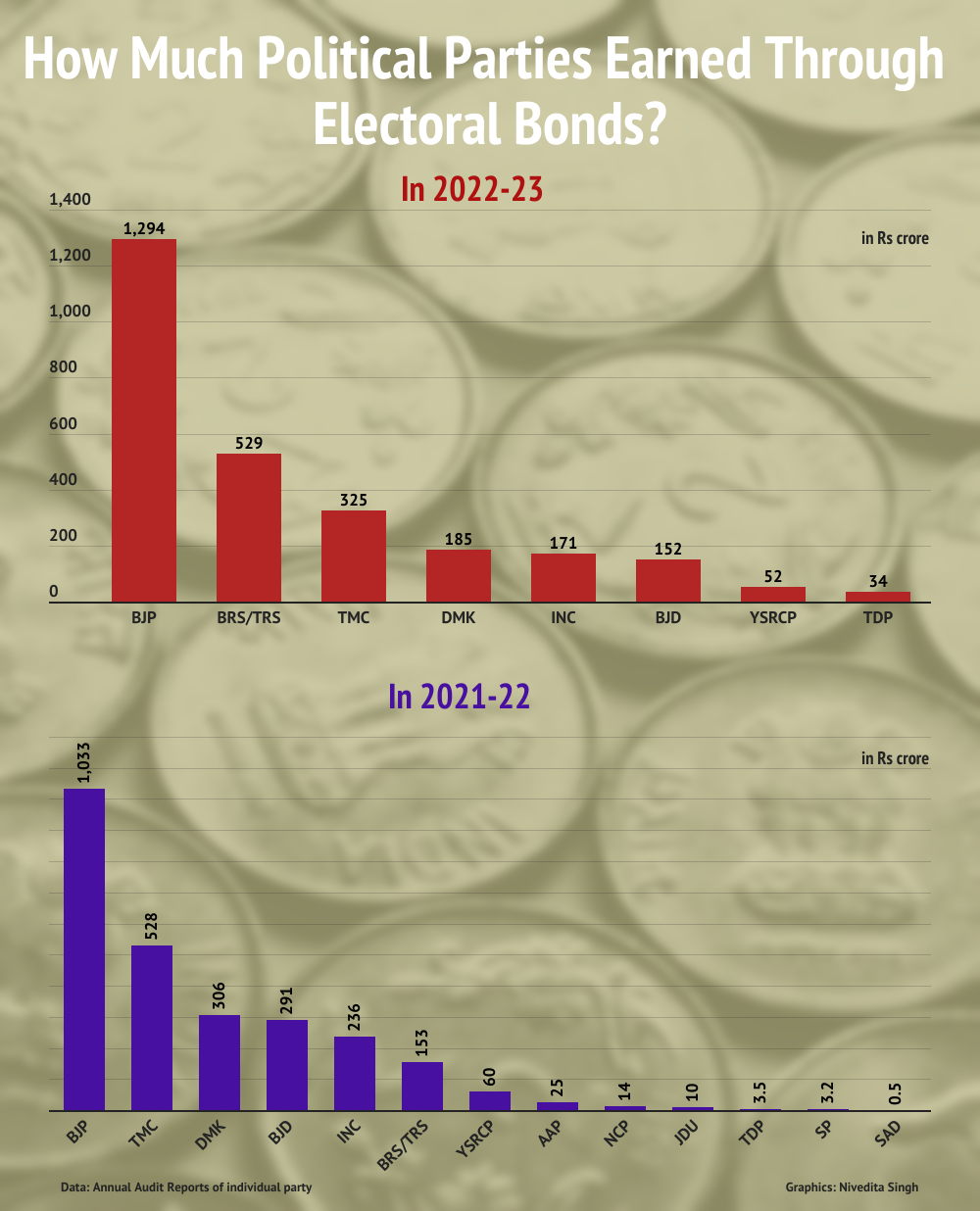
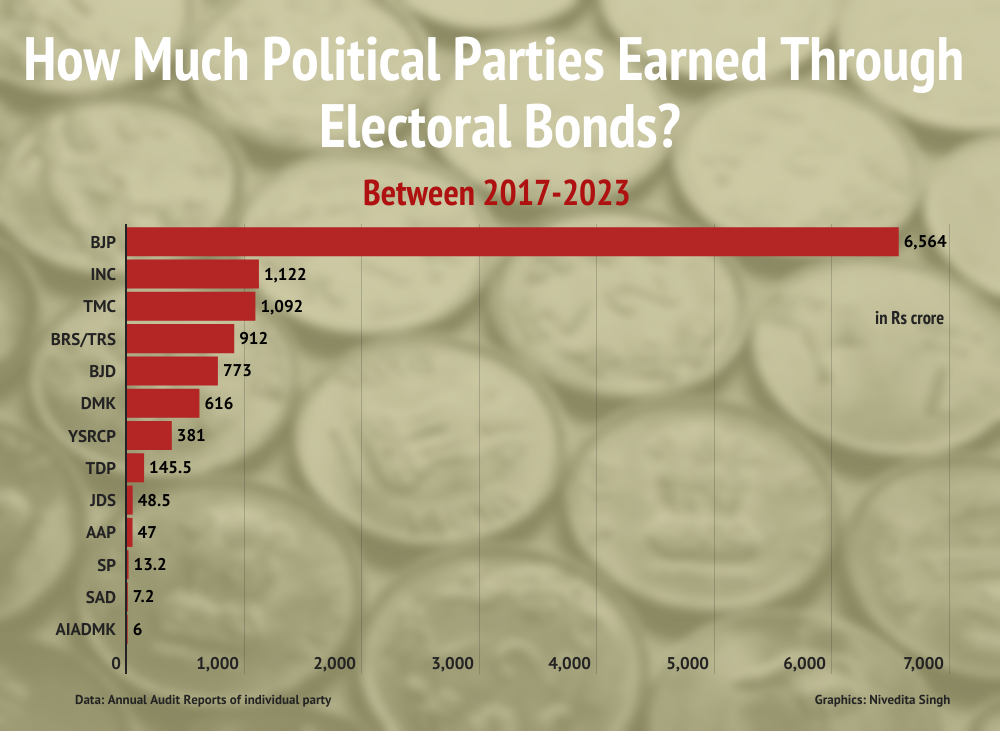
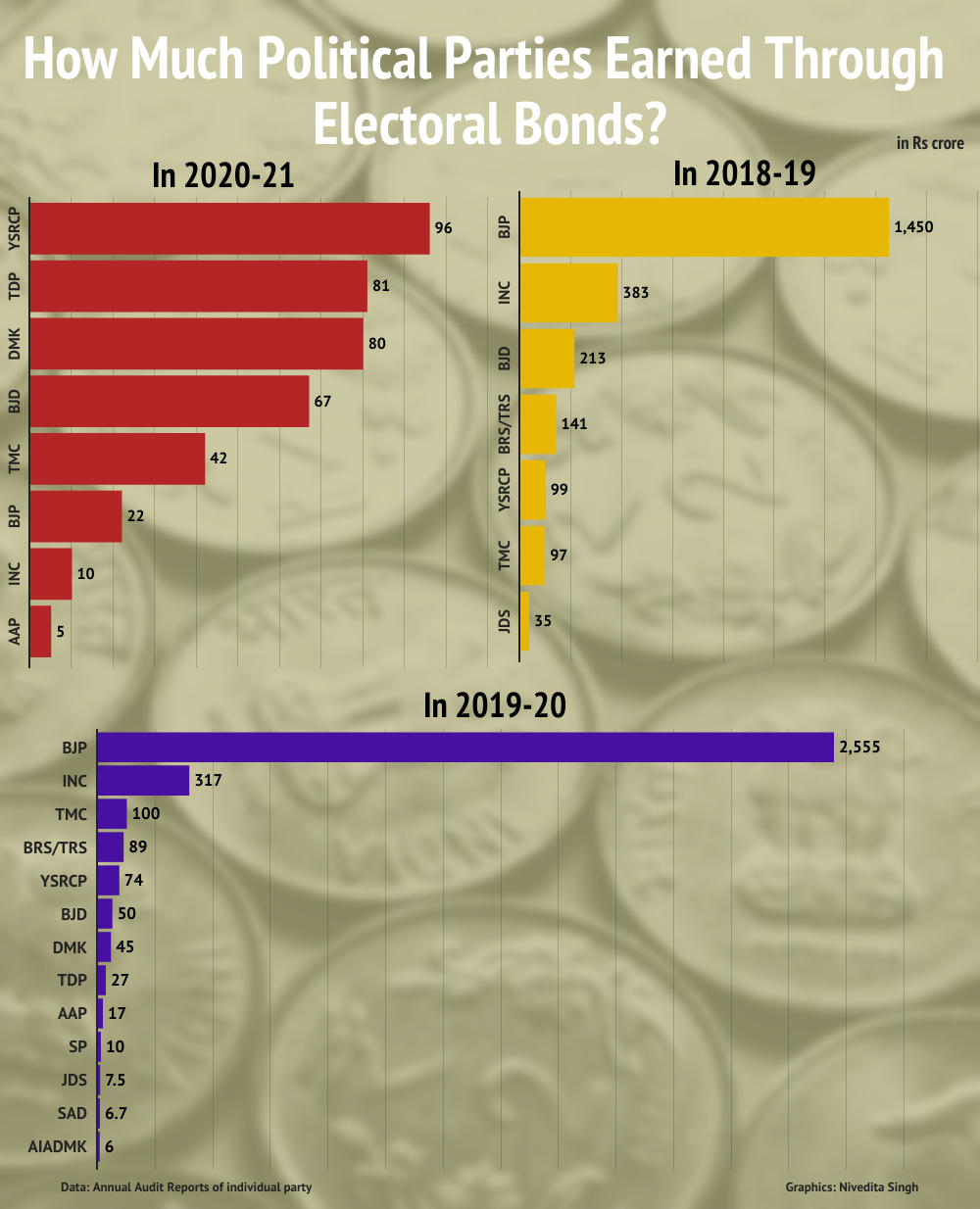
Since 2017-18, a massive sum of Rs 6,564 crore has been collected by the ruling BJP through electoral bonds – more than the collective amount received via the process by all other national and regional parties, data analysed by News18 shows.
In 2017-18 and 2018-19, parties received a total of Rs 2,760.2036 crore from electoral bonds, and over 60% of this – Rs 1,660 crore – was bagged by the BJP.
Further, the BJP was among the only three parties that received funding through these bonds in 2017-18. With Rs 210 crore of contributions through the process, the party had 95% of all the electoral bonds purchased in 2017-18. The other two parties were the Congress with Rs 5 crore and the Janata Dal (Secular) with Rs 6 crore.
In 2019-20, around the time when the previous Lok Sabha polls were held, the BJP received a massive Rs 2,555 crore – the highest amount collected by any political party in a financial year. It was more than twice the amount that the Congress collected in the six years between 2017 and 2023.
The major national and regional parties collectively earned more than Rs 11,727 crore from electoral bonds between 2017-18 and 2022-23, as per the details they individually submitted to the Election Commission of India.
After the BJP, it is the Congress that received the highest contribution through these bonds – Rs 1,122 crore in the last six years. It was followed by the TMC (Rs 1,092 crore), BRS (Rs 912 crore), BJD (Rs 773 crore), and DMK (Rs 616 crore).
In 2019-20 and 2018-19, more than half of the total income of national parties came from electoral bonds.
ABOUT THE SCHEME
Under the scheme, individuals and companies from India could donate bonds to political parties of their choice. These bonds were issued in multiples of Rs 1,000, Rs 10,000, Rs 1 lakh, Rs 10 lakh, and Rs 1 crore, and no limit existed on the number of electoral bonds that could be purchased.
The amount from bonds not encashed within 15 days was deposited by the authorised bank to the Prime Minister’s Relief Fund (PMRF). As per an ADR report dated October 2023, a total of 189 bonds amounting to Rs 23 crore were deposited in the PMRF.
For political parties to receive electoral bonds, they would have to be registered and must have secured not less than one per cent of the votes polled in the last general election to the House of the People or the Legislative Assembly, as the case may be.
For this very scheme, Section 29C of The Representation of the People Act, 1951, was amended to remove the obligation of political parties to keep a record of the identity of donors who gave any sum of money through electoral bonds or report this to the poll body annually.













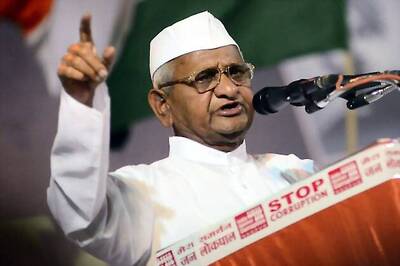



Comments
0 comment